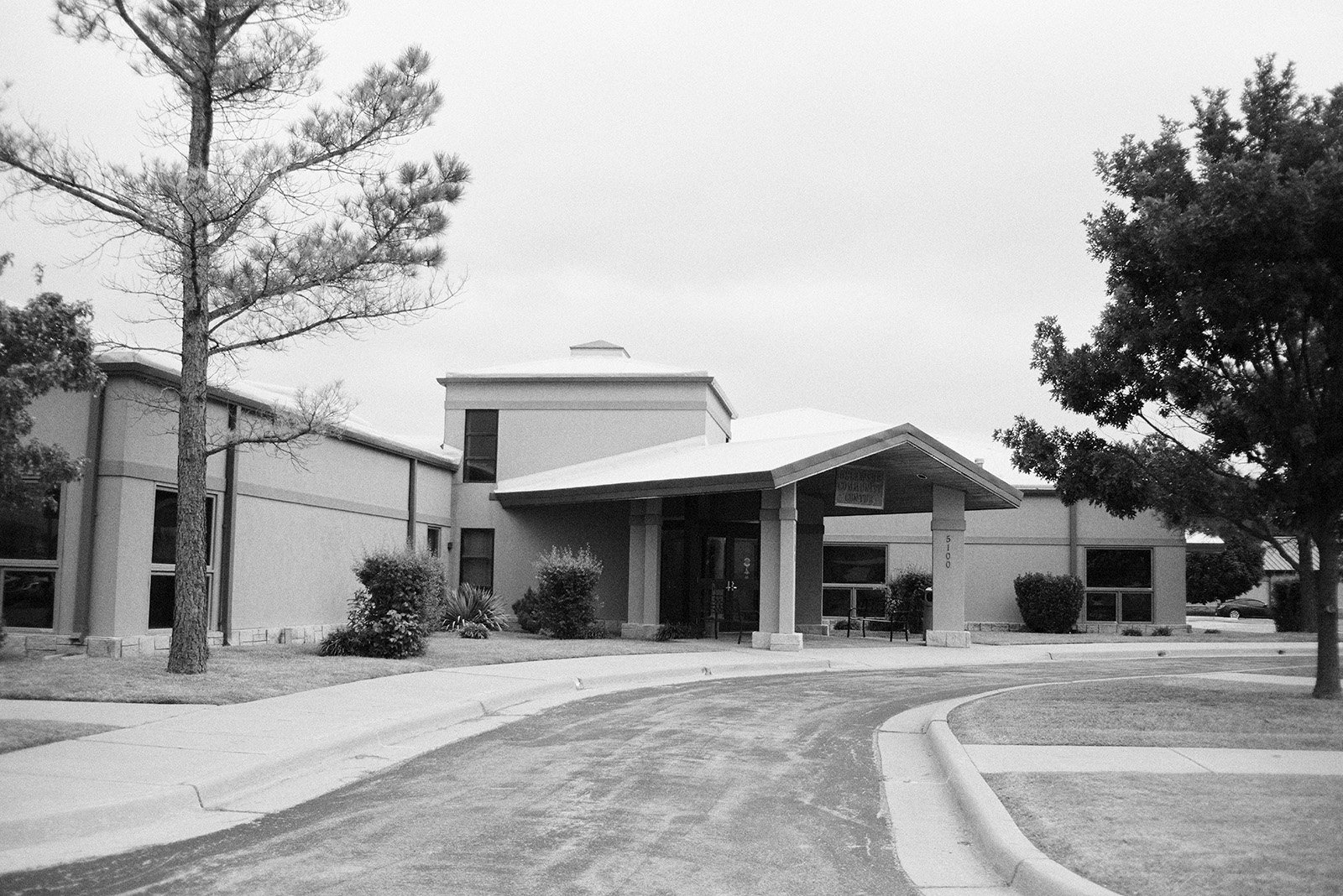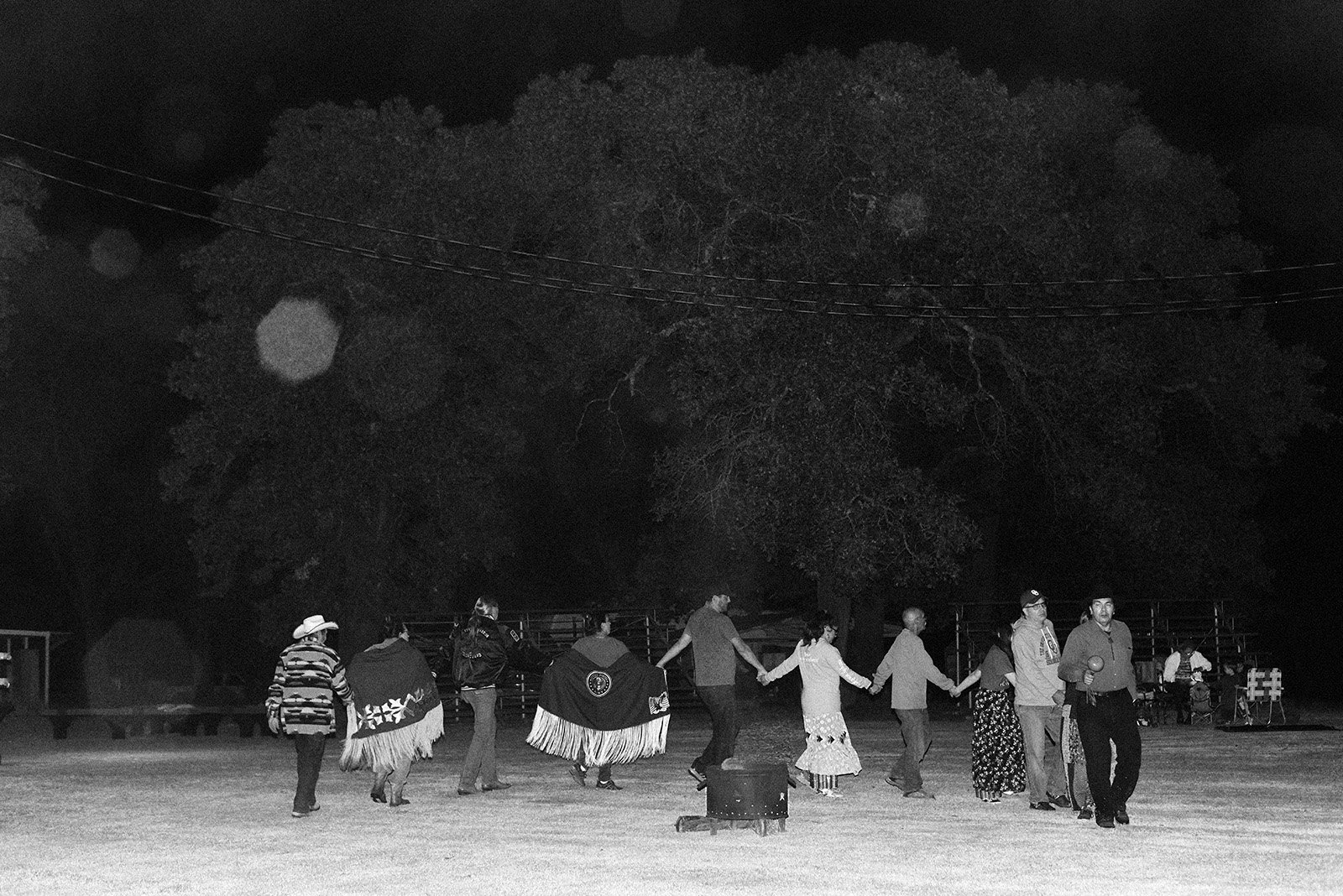“If you think of the Indians as a group of people from the past—There are no more Indians! They don’t exist today!—you’re putting us in the same group as dinosaurs. We’re saying, No! We are very much alive! We are prospering and we are having a renaissance!”
- Curtis ZunighaLenape & Decolonization for Suited Magazine
Words and Photographs by Chris Callaway
I traveled to the northeastern most corner of Oklahoma to meet Curtis Zunigha and attend the Delaware Days pow wow in Bartlesville on September 28, 2018. The landscape in this region has large hills of the tapering Ozarks to the east and the beginnings of the vast southern prairie to the west. Huge, open pastures with singular oak trees pepper the horizon while thigh-high grass sways in the wind like undulating waves in the ocean.Zunigha is Lenape, also known as Leni Lenape, or Delaware people. The Lenape are the indigenous people originating from Manhattan, Long Island, New Jersey, and Pennsylvania before the U.S. government forced them to move southwest to Oklahoma and Ohio, and northwest to Canada. Zunigha was chief of the Lenape Nation from 1994 to 1998 and has played a crucial role for his community and nation by preserving stories, songs, and dances in the Lenape tradition and language. He is the master of ceremonies at local and pan-Indian pow wows, which helps to carry on the time-honored religious dances and prayers. He is currently the director of cultural resources for the Delaware Nation; his focus on cultural preservation includes restoring language, archiving historical artifacts, running a library and research center, and leading history programs and cultural activities like the Delaware Days event. Zunigha is also the co-founder and co-director of the Lenape Center, a nonprofit organization in Manhattan, focused on restoring Lenape arts and humanity by creating a healthy conversation about decolonizing major art institutions and reclaiming stolen clothing, religious artifacts, and often, human remains, lost through the many years of colonial conquest.When I pulled up to the Cultural Resource building for the Lenape band of Delaware people in Bartlesville, Zunigha was hard at work preparing for Delaware Days, which would take place over the course of the next 48 hours. I introduced myself and helped him unload boxes before we sat down to start our first interview.
Chris Callaway: What are the most important aspects of Lenape identity, and how do you maintain it?
Curtis Zunigha: Our culture is the foundation of our identity. Yes, we are a federally recognized nation and we have legal and political status, which are very important parts of our identity, but our culture and our language is what gives us a unique identity, and it is a god-given gift—therefore, you honor and respect it and treat it well. The best way to preserve culture is to practice it. We may have lost some of our traditional knowledge over the decades, but we have not lost our culture. So now I’m charged with the responsibility of preserving and practicing our culture, teaching it, and organizing cultural activities.CC: Hearing these efforts to restore cultural identity is incredibly relevant in this current political juncture. What would be a powerful message to those in power at the moment?
CZ: It may have taken 500 years, but the effects of colonization and power is now coming back to visit those who have the power, and their power is crumbling, and the truth is being exposed, and it is an ugly truth. We must use that truth to achieve balance and harmony. There must be reconciliation! In many cases before you have reconciliation, there must be justice. “It may have taken 500 years, but the effects of colonization and power is now coming back to visit those who have the power, and their power is crumbling, and the truth is being exposed, and it is an ugly truth.”
— Curtis Zunigha

CC: What are some of the positive impacts of the Lenape Center, and how has it helped the indigenous community?
CZ: The Lenape Center works to promote the historical truth and tries to facilitate the return of Lenape people to New York. They commissioned an opera by Brent Michael Davids called “Purchase of Manhattan” in the Marble Collegiate Church in 2014. They also lead symposiums in Manhattan about Lenape identity then and now, and other topics about decolonization of major art institutions. We lead environmental activism, particularly on the Hudson River, and, taking the historical persona of the Lenape, we [publicly] recognize that there are still a lot of things in New York City that carry Indian names from the Lenape Nation long before colonial contact. But, most importantly, we try to promote Lenape contemporary art by infusing ancient and traditional culture expressed through a modern context to get young people involved.Decolonization is not just the rejuvenation of material objects but also a mental exercise. The practicing of traditional song and dance is vital to maintaining cultural identity, which is exactly what Zunigha and I were off to do next. It was getting late so we left for Delaware Days, which took place approximately 25 miles northeast of Bartlesville and very close to the Oklahoma-Kansas border. As I entered the grounds, there was a cleared circular dancing area surrounded by small sections of bleachers. Around the bleachers were many three-walled structures nestled in the scattered oak trees on the premises, where the Lenape families use quaint lean-tos for camping during these multi-day events.I quickly realized that this was going to be a very intimate and unique experience. I grew up in Ada, Oklahoma, and am part Chickasaw. Particularly as someone from a different American Indian nation, I was honored and touched to be included in such an affectionate and confidential ceremony. The Lenape people engage in cultural fellowship, feasting, singing, and dancing that is specific to their culture. After dinner, I sat with Zunigha at the edge of the dance circle, waiting for night to take over so the singing and dancing could begin. In the meantime, Zunigha told me that he grew up in a military household and later joined the U.S. Air Force to become the third generation of military soldiers in his family.
CC: How did it make you feel to fight for a government that has ultimately done so much harm to your people?
CZ: That is certainly a paradox, but there is only one homeland to defend. The military has always been a part of our warrior culture. Serving in the military, in many ways, is escaping a living environment where Indians are always marginalized and taught that you’ll never rise above a certain status in society, but a lot of the Indian boarding schools in the late 1880s were put in place to take the kids out of their homes and take away their Indian identity by removing their hair, moccasins, language, and, in effect, totally removing their culture. As one [military officer] said, “Kill the Indian, but save the man.” Divide and conquer. Break up the tribes and make them individual Indians. Know that you’ll never rise to up to be the mighty Delaware Nation, so convert your mind, learn English, and move on. The military is a way to gain affirmation as a person of worth, and our nation holds veterans in very high regards. I still love our country.
After completing his military service and getting a college degree, Zunigha moved back home to Bartlesville. His upbringing in a mixed Lenape and Cherokee nation made him very aware of the difficulties his nation faced with the government. He was able to apply the knowledge and skills learned as a younger man into his efforts to help his community by serving his people in many capacities.
Since becoming chief of the Lenape Delaware Nation, he has helped change the legal and political dynamic of the nation while functioning as a student and teacher of his culture and language.
CC: What is your focus now, after serving politically?
CZ: I am more interested in having a strong cultural foundation to assert the identity as Lenape and as the Delaware Nation than being a political leader. While it’s important to establish a tribal government, bring in funds, and provide services for people, I now choose to focus on historical culture, tribal identity, and preserving the language. The language is the foundation of all things culture.The sun patiently settled behind us. It was now time to dance. Zunigha took the microphone and gathered the other drummers, singers, and dancers. I spent the rest of the night listening to the Lenape elders sing powerful, low vocals to traditional songs. The shell dancers rattled their way around the fire to the deep pulsation of the drums. The native language sounded beautiful, and it is certainly something to celebrate. Before the American Indian Religious Freedom Act of 1978, it was prohibited by law for Native Americans to believe, express, and exercise any traditional religious rights and cultural practices. It has only been 40 years since Native Americans have had the right to freedom of religion. These dances carry special meaning. The discussion of decolonization that allows people of all indigenous communities to stand up for themselves and reclaim what is rightfully theirs is long overdue.









